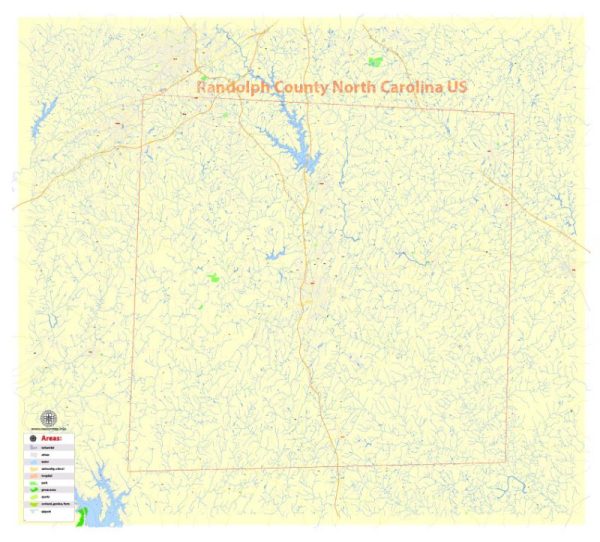General overview of Randolph County, North Carolina, in terms of business and economic development. For the most current and detailed information, it is recommended to check with local government sources, economic development organizations, and recent news updates.
Randolph County Overview:
Location: Randolph County is located in the central part of North Carolina, United States. The county seat is Asheboro.
Economic Base: Randolph County has a diverse economic base, with strengths in various sectors, including manufacturing, agriculture, healthcare, and education.
Manufacturing: Manufacturing plays a significant role in Randolph County’s economy. The county has a history of being home to various manufacturing and industrial facilities, producing goods ranging from furniture and textiles to machinery and automotive components.
Agriculture: Agriculture also contributes to the local economy. The county has a mix of small family farms and larger agricultural operations, producing crops like poultry, livestock, and various crops.
Healthcare and Education: The presence of healthcare facilities and educational institutions contributes to the stability and growth of the local economy. Asheboro, as the county seat, typically serves as a hub for such services.
Economic Development Initiatives:
Economic Development Organizations: Randolph County likely has economic development organizations that work to attract and support businesses. These organizations may offer resources, incentives, and support to encourage business growth and development.
Small Business Support: Efforts to support small businesses, entrepreneurship, and local startups may be in place. Programs providing financial assistance, training, and mentorship could contribute to the growth of the local business community.
Infrastructure Development: Investments in infrastructure, such as transportation and utilities, are crucial for economic development. Improving roads, utilities, and other essential infrastructure can enhance the attractiveness of the region for businesses.
Workforce Development: Training programs and partnerships with educational institutions may be in place to ensure a skilled and competitive workforce. This can be important for attracting new businesses and supporting existing ones.
Tourism: Depending on the area’s natural and cultural assets, there might be efforts to promote tourism. This can contribute to economic development by attracting visitors and creating additional opportunities for local businesses.
Challenges:
Economic Diversification: Balancing and diversifying the economic base may be a challenge, especially if the county is heavily reliant on a specific industry. Economic development initiatives may focus on expanding into new sectors to increase resilience.
Workforce Skills Gap: Addressing any gaps in workforce skills and education is crucial to meet the demands of evolving industries. Training programs and partnerships with educational institutions can help bridge these gaps.
Global Market Competition: In a globalized economy, businesses in Randolph County may face competition from global markets. Strategies to enhance competitiveness and access global markets may be part of the economic development plan.
To get the most accurate and up-to-date information, consider reaching out to local government offices, chambers of commerce, and economic development organizations in Randolph County. They can provide specific details about current economic development initiatives, business climate, and investment opportunities in the area.


 Author: Kirill Shrayber, Ph.D. FRGS
Author: Kirill Shrayber, Ph.D. FRGS